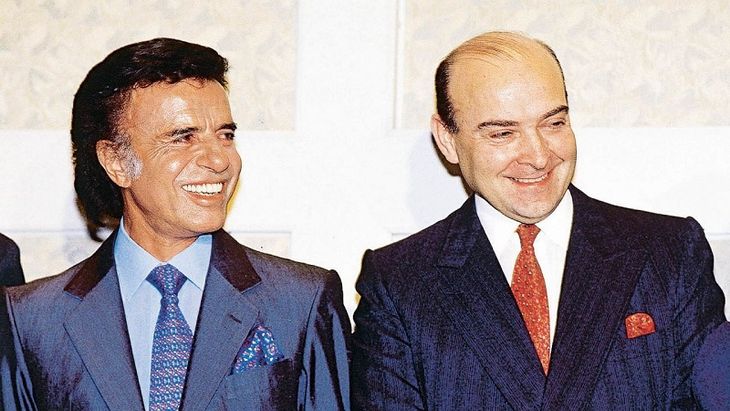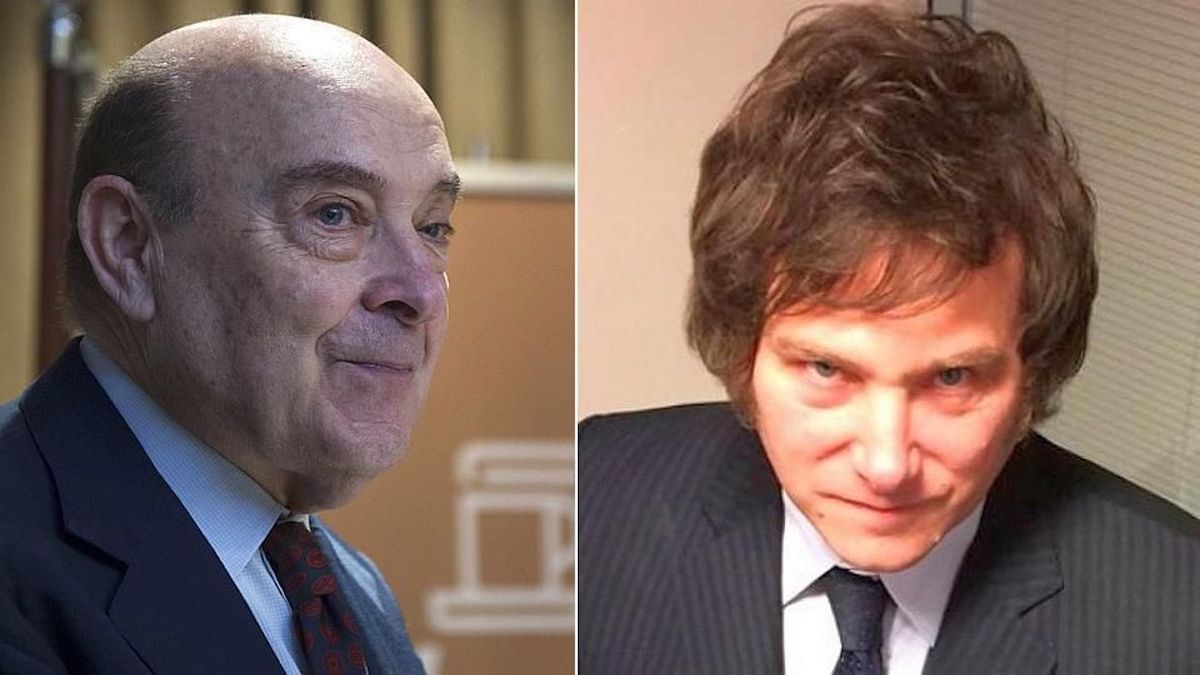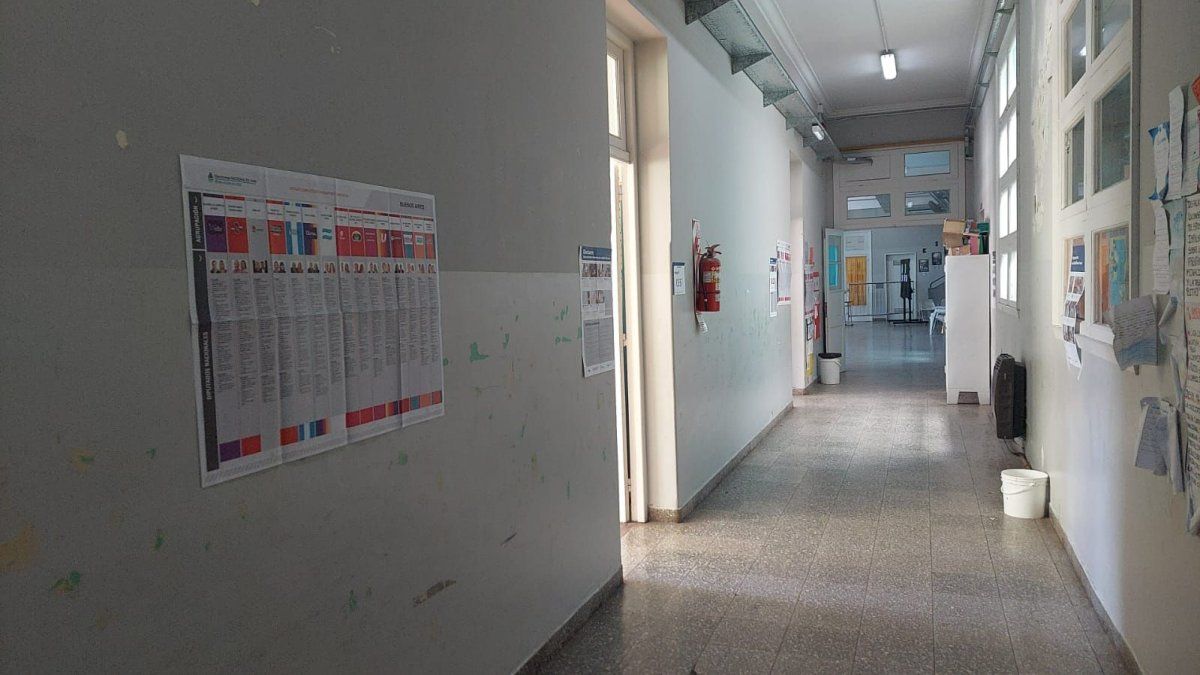He president Javier Milei responded to criticism of former Minister of EconomyDomingo Cavallo, on the appreciation of the peso in reference to the dollar. “I think Cavallo’s statement is shameful.. I am surprised, in a bad way, by your judgment, so light and so poorly founded technically, to make a shot of these characteristics,” the libertarian leader strongly questioned.
Javier Milei’s harsh response to Domingo Cavallo
After Cavallo’s criticism, the President did not remain silent and harshly criticized the former Minister of Economy in charge of carrying out the convertibility plan. In reference to a “exchange delay” of the peso with respect to the dollar, Milei assured that, from his perspective, the exchange rate “it’s not late.” ““The stupidity that Cavallo said is irritating and insulting,” he shot.
“When he was Minister of Economy and They talked to him about the exchange rate and he went crazy and became quite violent.that happened during convertibility. But remember what he did in ’94 and ’95, the tequila effect, how he wore it and the things he said,” the current president accused Cavallo, whom, before assuming the presidency, he described as “the best economist in the world.” Argentine history”.
capture milei interview.jpg
In an interview lasting more than almost 2 hours, the President harshly criticized the management of the former Minister of Economy of Carlos Saúl Menem.
However, praise for his colleague was left behind in the midst of the exchange rate debate. Milei was very critical of Cavallo’s management at the head of the Ministry: “The equivalent of that type of change that he defended It was 700 pesos today. Not only was it 700 pesos, but they did not have a fiscal balance,” the president explained.
After this, the President accused that “the analysis made by the econochantas of Mandrilandia is wrong” with respect to the appreciation of the peso, since “they are biasing the sample” that they take to perform the calculations.
“What most people use is an indicator called real exchange rate that computes how the nominal exchange rate, international and local inflation move. The point is: where do they make the cut? What a coincidence that they make the court in 2002just when convertibility was exited there was a very high overshooting. In 2002 it had the highest exchange rate in Argentine history.”the President elaborated.
Then the President assured that there are three models that can be applied to determine the situation of an exchange delay: the one used by “Kirchnerism”, the one applied by former president Mauricio Macri or that of José Alfredo Martínez de Hoz.
“Case two is the Macri government. You have a fiscal deficit, a deficit that Macri did not correct even the primary line, because when he reached the primary balance – non-financial, that is, without interest -, in that case he achieved it with liquefaction of items and releases without payments, throwing it to the next government,” Milei said and sentenced: “He also went into debt. You brought the dollars and the exchange rate fell then he appreciated the currency.”
Cavallo’s opinion on Javier Milei’s economic direction
Cavallo aroused the President’s anger after statements in which, although he highlighted the government’s achievements in macroeconomic stabilization, he also warned about the risks derived from the appreciation of the peso against the dollar. and its implications for economic competitiveness.
Cavallo Menem.jpg

Cavallo assures that today’s peso appreciation is similar to the convertibility period.
In this sense, the economist recognized that the inflation in 2024 decreased more than expectedpartly thanks to monetary control and the elimination of the fiscal deficit. However, he stressed that the exchange rate policy, marked by the intervention of the Central Bank to manage multiple exchange rates, was a crucial factor. As detailed, this generated a real appreciation of the weight that negatively affects exporters, industrialists and sectors that compete with imports.
In this way, Cavallo pointed out that the Argentine peso is at a level similar to the convertibility period, which poses important challenges:
- Increase in imports: The competitiveness of national products is compromised compared to imported goods.
- Export discouragement: Especially in key sectors such as agriculture and manufacturing.
- Impact on the balance of payments: Appreciation makes it difficult to accumulate international reserves necessary to cover external obligations.
The analysis includes references to the period 1991-2001, when exchange rate stability was accompanied by real appreciation. Cavallo recalled that during convertibility, the lack of structural adjustment measures, such as low withholdings and lower fiscal pressure, contributed to the economic collapse. In this sense, warned that the current situation presents worrying parallels.
Finally, the former Minister of Economy recommended eliminate the exchange rate, reduce withholdings on exports and implement temporary reductions in employer contributions to address the effects of appreciation.
Source: Ambito




